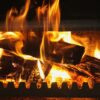Achieving an Odor-Free Fireplace in Fairfax VA: Expert Advice
As a homeowner in Fairfax, Virginia, having a fireplace can be a delightful addition to your home. Beyond the cozy warmth it provides on chilly nights, it adds an elegant aesthetic appeal to your space. However, a fireplace can also be a source of unpleasant odors if not properly maintained. Luckily, there are numerous ways to ensure your fireplace stays odor-free, contributing to a fresh and welcoming atmosphere in your home.
Primary Causes of Fireplace Odors
Understanding the source of the odor is key to effective elimination. The most common cause of fireplace odors is creosote buildup. Creosote is a byproduct of burning wood, and it often accumulates in the chimney walls. When the weather turns hot and humid, the creosote emits a strong, unpleasant odor. Other potential sources of fireplace odors include animal nests, moisture, and mold growth in the chimney.
Preventing and Eliminating Fireplace Odors
1. Regular Chimney Cleaning
The most effective way to prevent and eliminate fireplace odors is to maintain a regular cleaning schedule. This means hiring professional chimney sweep services to ensure thorough cleaning. For instance, companies like A&T Chimney Sweeps fireplace, furnace, dryer vent, gutter cleaning, and repair services in Fairfax VA are well equipped to handle such tasks. They have the necessary tools and expertise to clean your chimney and fireplace thoroughly, removing soot, creosote, and any other debris that could cause odors.
2. Chimney Caps Installation
Installing a chimney cap can help prevent animals from entering your chimney and building nests, a common source of unpleasant smells. The cap also keeps out rain and snow, reducing the risk of moisture buildup and subsequent mold growth within the chimney.
3. Use Seasoned Wood
Always use seasoned or kiln-dried wood in your fireplace. Burning unseasoned wood creates more smoke and creosote, contributing to a higher risk of unpleasant odors. Seasoned wood burns hotter and cleaner, resulting in less residue.
4. Deodorizing Agents
If the odor persists after cleaning, you may want to consider using a chimney deodorizing product. These products are designed to neutralize chimney and fireplace odors. However, they should be utilized as a last resort after professional cleaning and other preventive measures have been undertaken.
5. Regular Inspections
Finally, regular chimney inspections are crucial in maintaining an odor-free fireplace. A professional chimney sweep can identify potential issues, such as cracks or leaks that could lead to moisture and mold growth in the chimney.
FAQs
1. How often should I have my chimney cleaned?
It’s recommended to have your chimney cleaned at least once a year, preferably before the start of the winter season when fireplaces are frequently used.
2. What kind of wood is best for burning?
Hardwoods like oak, maple, and ash are ideal as they burn hotter and produce less creosote compared to softwoods.
3. What are the signs that my chimney needs cleaning?
Some signs that your chimney needs cleaning include a strong, unpleasant odor, a buildup of soot or creosote in the fireplace, smoke entering your home when the fireplace is in use, or a visible animal nest or blockage in the chimney.
4. Can I clean my chimney myself?
While some minor cleaning tasks can be done yourself, it’s generally safer and more effective to hire a professional chimney sweep. They have the necessary training and tools to clean your chimney thoroughly and safely.
In conclusion, an odor-free fireplace is achievable with regular cleaning, preventive measures, and professional help when necessary. By maintaining your fireplace properly, you can enjoy the comfort and appeal it brings to your home without worrying about unpleasant odors.








